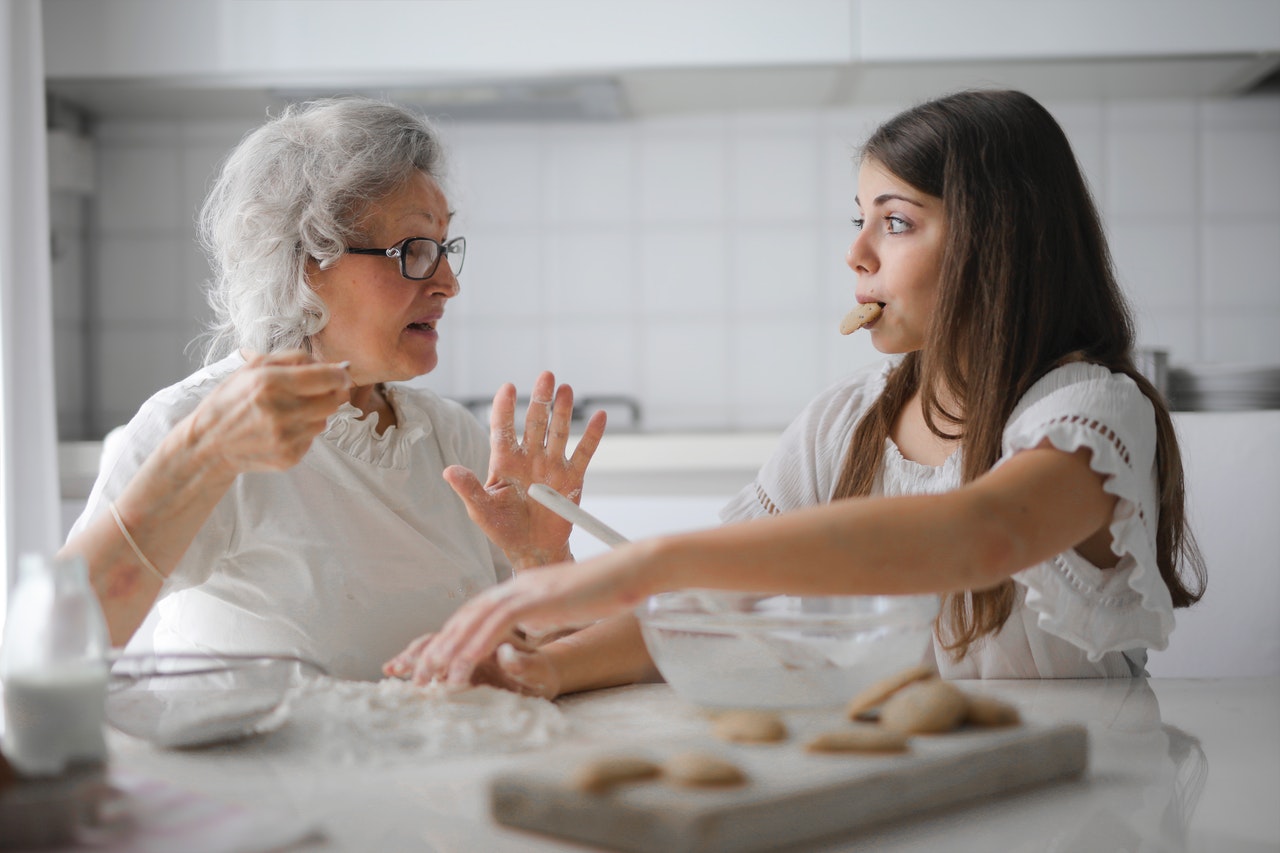What Causes High and Low Potassium Levels in Seniors?

Potassium is an essential mineral that regulates salt balance in the body, but it also has other relevant functions for seniors, including muscle contraction and nerve transmission. You can find potassium in bananas, oranges, cantaloupe, tuna, nuts and many more. Seniors require to have an adequate level of potassium in their diet to be healthy. However, too much or too little potassium can be dangerous for seniors. That’s why it is important for you as a caregiver to understand the causes and symptoms to help your senior loved one manage their potassium level. But first, let’s look at what exactly a safe or normal potassium level is for a senior.
What is a Normal Potassium Level for Seniors?
In general, a normal potassium level for a senior is 3.5-5.0 grams per liter of blood. It can vary from person to person, but this is a good baseline value to shoot for. If you suspect that the potassium level in your senior is low, then it’s worth checking their blood levels regularly at your local hospital laboratory.
What Causes Low Potassium Levels in Seniors?
There are reasons why seniors may have low potassium levels. These factors include:
1. Diuretics
A doctor prescribes a medication to remove excess water from the body. This excess water is known as a diuretic. Because of this excess water removal, potassium gets simultaneously removed from the body. If this continues, your senior loved one’s potassium level will gradually drop to a dangerously low level.
2. Vomiting and Diarrhea
Seniors who have a vomiting or diarrhea episode may experience a loss of potassium because of the vomiting or diarrhea excretion. It can cause a drop in potassium level and make your senior loved one more susceptible to cardiac arrest.
3. Dehydration
If your senior loved one does not drink enough water to replenish the lost fluids, he becomes dehydrated. It causes a low level of potassium because water is needed to absorb the mineral from foods consumed. It also takes away other nutrients required by the body for optimal health. In this condition, your senior loved one may feel thirsty as his level of potassium drops.
4. Malnutrition
Seniors who do not eat healthy food or with certain metabolic conditions can develop malnutrition. It makes it more difficult for them to maintain the body’s potassium level as they lack the nutrients to do so.
5. Chronic Kidney Disease
Seniors who suffer from chronic kidney disease may develop low potassium levels because of the high levels of creatinine and urea in their urine. These by-products of the kidneys accumulate and create highly concentrated urine that is more dilute than normal and takes away more minerals like potassium.
What are the Symptoms of Low Potassium Levels in Seniors?
It’s not uncommon for seniors to have low potassium levels. Because of this occurrence, they are at risk of developing hypokalemia. This condition can be fatal if left untreated. Below are some of the symptoms that your senior loved one may experience if he has low potassium levels in his body:
1. Muscle weakness
2. Fatigue
3. Muscle cramps
4. Confusion
5. Constipation
6. Chest pains and shortness of breath,
7. Depression and mood swings
4 Ways to Help Your Senior Loved One Manage Low Potassium Level

Although the symptoms may sound alarming, there are ways you can take to help minimize these symptoms and prevent the risk of getting your senior loved one into danger. The following are some helpful ways to manage low potassium levels in your senior loved one:
1. Avoid Salt Restriction
If you are the caregiver of your senior loved one, avoid restricting their salt intake because this can put their health in danger. Instead, encourage them to eat more food that has potassium content, like celery, oregano and spinach. It will help boost their level of potassium in the body and prevent further complications.
2. Encouraging Him to Eat Potassium-rich Foods
Because potassium levels depend on the type of food your senior loved one consumes. You can also help by encouraging him to eat more foods to keep his potassium level at the ideal range for optimal health. It includes natural foods like steamed dairy products, meats, green leafy vegetables and chlorophyll proteins.
3. Encouraging Your Senior Loved One to Drink Water
Water is the best way to replenish body fluids. It also helps to hydrate the kidneys and other organs in the body, thus helping your senior loved one maintain his potassium level. So make sure he stays hydrated 24/7 by giving him plenty of water to drink at all times, especially while he sleeps.
4. Consult Doctor
If you notice that your senior loved one is experiencing muscle cramps, chest pains and shortness of breath, it’s time to visit your doctor because this can be a sign of a heart attack. So make sure that you call the doctor and finds your potassium level is too low, then he can recommend medications and changes in diet and lifestyle that will help improve the level.
5. Consider Senior Caregiving Services
If your senior loved one has a low potassium level and you are the family’s caregiver, sometimes you may find it a bit challenging to attend to their needs. In this case, it’s a good idea to consider senior caregiving services from a professional care provider like Serenity Senior Care to attend to your senior loved one’s needs without having you worry about them. In addition, the support of a professional senior caregiving service will take away the responsibility of getting your senior loved one engaged in activities and giving first aid if he has an emergency.
What Causes High Potassium Levels in Seniors?
A high potassium level in the body is also known as hyperkalemia. There are three leading causes of this condition:
1. Potassium-rich diet
This is the most common cause of high potassium levels in seniors. Seniors who have a lot of potassium-rich food can develop hyperkalemia if they don’t digest it properly. For instance, if your senior loved one has kidney disease or difficulty swallowing solid food, he can accidentally ingest large amounts of potassium that may lead to hyperkalemia.
2. High Potassium-Containing Medical Drugs
Some prescription drugs that your senior loved one may be taking, such as medications for heart disease, can cause high potassium levels to rise in his body.
3. Limited Blood Flow to the Kidneys
Seniors who have poor blood circulation or are physically inactive are more likely to develop high potassium levels. It is because the kidneys are not getting enough oxygen to their tissues, leading to kidney failure.
What are the Symptoms of High Potassium Levels in Seniors?
The symptoms of high potassium levels in seniors depend on the degree of their condition. For example, if your senior loved one has mild potassium hyperkalemia, he may experience symptoms such as nausea, shortness of breath, and fatigue.
But if there are high levels of potassium in the body, they can also experience more serious symptoms, such as:
1. Seizures
2. Aggressive behavior
3. Paralysis and coma
4. Heart attack and arrhythmia (irregular heartbeat)
5. Depression and mood swings
6. Dizziness, vertigo and fainting spells
7. Numbness or tingling in the arms, legs or face
4 Ways to Help Your Senior Loved One Manage High Potassium Level

1. Encourage Loved One to Consume a Low-Potassium Diet
You can do this by limiting your loved one’s intake of potassium-rich foods. It means he should limit his intake of foods containing excess potassium to prevent further increase in his potassium level. For instance, fruits, vegetables, meat and dairy products are high in potassium content.
2. Avoiding Certain Salt Substitutes
Avoid your older loved one from taking salt substitutes that contain potassium. It is because they may lead to an increase in blood potassium levels.
3. Avoiding Supplements and Herbal Remedies
Some supplements and herbal remedies on the market can also cause high levels of potassium in your senior loved one’s body. So it is best to avoid these as well for the sake of his health.
4. Taking Potassium Binders and Water Pills as Prescribed by Doctors
If the potassium level is too high in his body, he should take a potassium binder medication. This medication can help him to absorb more of the sodium that his body needs. However, It is best to consult your senior loved one’s doctor before you take these medicines so that he can prescribe the correct dose to lower his potassium levels for good.
Managing high and low potassium levels in seniors is very important to their health. Potassium plays an important role in keeping the balance of fluid in the body. Keeping your senior loved one’s potassium level regulated can help prevent serious symptoms such as muscle cramps, irregular heartbeat, and seizures.
So if you notice that your senior loved one is experiencing symptoms of either high or low potassium levels, take them seriously by consulting their doctor immediately. Doing so can help reverse any damage done to his body, thus keeping him healthy for a longer period.



Pingback: How Much Potassium Per Day For Elderly?